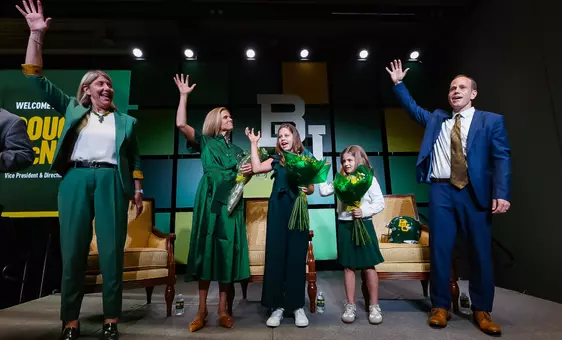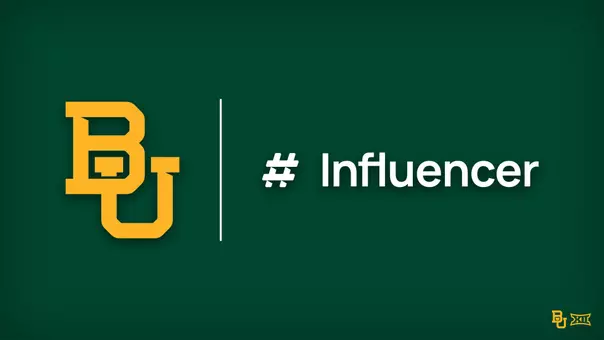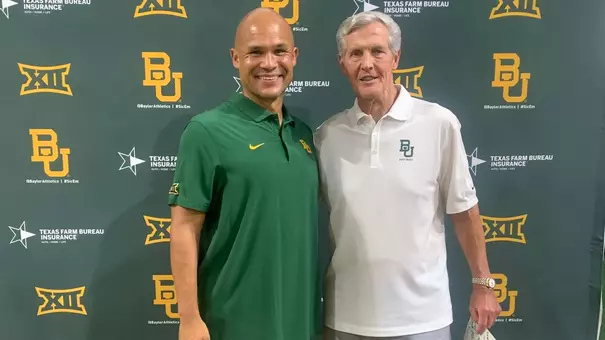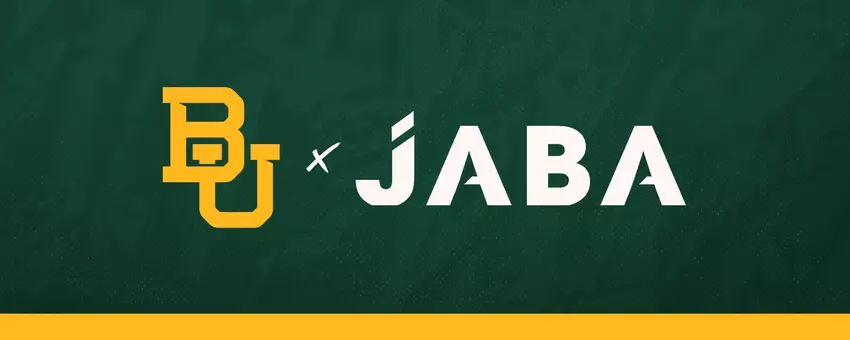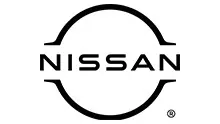
YOU’RE NOT IN IOWA ANYMORE
11/13/2019 10:42:00 AM | General
From Farm Boy to Assistant AD for Applied Performance
 By Jerry Hill
By Jerry HillBaylor Bear Insider
From bailing hay as a farm boy in rural Iowa, to butchering meat at the Edgewood Locker, to bartending at Eagle Ridge Resort, to playing Division III football at Loras College, to changing his college major three times, to coaching and strength and conditioning positions at three different schools, all of it has prepared Andrew Althoff for this moment.
"Everything in my life has built on itself," said Althoff, who is Baylor's Assistant AD for Athletics Performance, working specifically in the applied performance area.
That includes seeing the incredible blue-collar work ethic of his dad and mom, a milk truck driver and rural mail carrier, respectively.
"My dad's retired now, but he was a milk truck driver for a long, long time," Althoff said. "Maybe not necessarily the most fun job, but he loved it. He loved being around the farmers and loved helping. Both my parents had blue-collar jobs. Coming from a small town where everybody works hard, it was like, 'OK, this is just what you do.,' which translated very well to coaching."
Andrew grew up "doing country things" in Edgewood, Iowa, a town of about 900 people with no stoplights in the entire county. The closest Walmart, where he was once Cashier of the Month, was 30 minutes away.
Putting himself through college, Andrew worked as a sous chef, line cook and bartender at a resort in Galena, Ill., where he learned to read the room.
"You watch somebody come in the room, and just based off of how they're hanging their head or shoulders or laughing or smiling or talking on their phone, you start to develop this emotional intelligence," he said.
Going to Loras with the plan of becoming a coach and teacher, Andrew switched majors from art to math to biology and finally settled on sports science.
"I was close to finishing up my biology degree and was like, 'Man, I really don't know if I want to teach,''' he said. "I was going to work at 4 and bartending, I'd get home at 2 in the morning, get up at 5:30 to coach from 6 to 10:30 in the morning and then take a couple classes. It was crazy that I was doing that to myself. I wasn't sleeping, I was doing whatever I could to be able to coach. Finally, I was like, 'Let's do this.'
"I ended up leaving there with a bunch of bartending experience, a major in sports science with a minor in biology and a minor in coaching."
When longtime Loras coach Bob Bierie left following Althoff's senior season, his replacement was Chris Klieman, now the head coach at Kansas State.
"I'm just in the weight room messing around, lifting one day, and the new head coach came in," Althoff said of Klieman. "He asks me if I want to help coach, so I do that for a year (2005). And then when he left the next year to go to Northern Iowa, he put in a good word with the new coach and I worked with him."
Two years later, he was a graduate assistant coach on a Valdosta State team that won the Division II national championship under first-year head coach David Dean.
"The cool thing about D-3 is there are just so many jobs to be done, you can learn so much" he said of his time at Loras. "Being the de facto equipment manager on game day, cleaning the weight room, coaching the weight room, coaching football, coaching all these different sports.
"And then, you go from Iowa Conference football where you're going to pound the ball, to a five-wide, 'Air Raid' type deal (at Valdosta). And it's like, 'Holy cow, this is a different style of football.' To learn that style of football and learn how to train athletes for a completely different style, to develop that background, that was amazing."
In February 2009, Althoff got the chance to make another big career move, leaving behind a GA position at Valdosta to become an assistant director of athletics performance for Olympic sports at Baylor. Working predominantly with the men's tennis program, he had the challenge of dealing with foreign athletes who had English as a second language.
"You have to change the way you coach," he said. "You have to demonstrate, you have to repeat yourself and you've got to develop some really good coaching cues. At the time, it's frustrating, because you had this language barrier. But then, as you get your chops over the next couple years, you're like, 'Man, what a valuable experience,' because it made me such a better coach."
About 5 ½ years ago, Andrew's career path took another turn when he became director of the new Applied Performance department that includes Catapult GPS and Omegawave technology and other ways to measure athletes' performance.

"At the time, we were kind of getting up and rolling, and it was like, 'What do we need to do to find an edge or get ahead?''' he said.
When someone in his network suggested he should take a look at GPS, Andrew's initial thought was, "OK, so I can figure out how far they go? Do I really care about that?"
"I looked into it, and I was like, 'Whoah!' OK, change of direction and acceleration, high-velocity yardage, all of these things. I was blown away."
What he didn't want to do, though, was keep "throwing money at it," just to add more and more technology.
"You end up getting a lot of data points, but it's like a mile wide and an inch deep," he said. "No, I want this piece of technology, and I'm going to drill and drill and drill until I'm a mile deep. And then I'll add something. Because what happens is you start doing too much, too early, and you're selling it to everybody like this is important and this is important. You can't keep up and you get a bottleneck of data, and now you've got to start cutting stuff out."
The first few years of the program, it was a matter of finding out what not to look at and whittling it down to the absolutely most important data points.
"We developed a partnership on campus with a PhD candidate at the time, Ben Bernard, and Ben helped us dig into some of this data," Althoff said. "And it was like, 'OK, what's important?' The next thing you know, you've got these 400 things, let's knock it down to 25. . . . And really, there are probably four or five things by position group that we've kind of narrowed down to being important. It's really just taking the time and getting in with the data."
Baylor head football coach Matt Rhule said it helps that Althoff has been a football player and coach and knows how to use the analytics and integrate it to help the overall program.
"He will set ranges for me in terms of practice, like, 'Hey, Coach, this is how long,' and he gives me a range," Rhule said. "But, he will work with me because he understands the football part of it. So, if I say, 'Andrew, we really need to get this,' he will say, 'What if we do this?' It's almost like a think tank of how best to practice."
Senior Associate AD Kenny Boyd, who oversees Student-Health & Wellness, said what makes Althoff unique is that "he has a lot of qualities and traits of a team of people."
He has the experience of a former student-athlete himself, "but to have somebody that has a statistics background, that also has a biology background, so more of the physiology part of it . . . and then mirror that with the performance side of what he's experienced," Boyd said, "you have the creation of who is the head of our applied performance group. Now, the people he's leading, he's leading in a way where it's looking at it from not only what you're pushing and pulling, but also from all these different vantage points."
 A few years ago, Althoff got the chance to look behind the curtain at NASA with Dr. Joseph Dervay, a flight surgeon at the Johnson Space Center in Houston.
A few years ago, Althoff got the chance to look behind the curtain at NASA with Dr. Joseph Dervay, a flight surgeon at the Johnson Space Center in Houston."It's not so much similar technology as it is zooming out from 20,000 feet and seeing how to manage something like this and the collaborative piece and what that looks like," Andrew said. "And then, to be able to bring that back here, kind of spin it and make it more of like a collegiate model."
This summer, Althoff returned the favor to make a presentation in Houston and will welcome a group of about 10 people from NASA on Nov. 18-19 to see firsthand how it's applied in a collegiate environment.
"It's an opportunity for them to see how we do it with our athletes, because they don't necessarily have somebody they can call and borrow stuff from," he said.
Andrew and his wife, Chrissie, who met at Loras College, have been married since May 2010 and have three boys, Tucker, 7, and twins, Joel and Eli, 5.
"I don't even remember the first year or two (after the twins were born), because it was just crazy," he said. "We had three kids under the age of 2. And then at one point, Tucker broke his leg, so we've got them in a red wagon pulling them around everywhere."
When Andrew walks in the door at night, he yells out, "Where 'dem boys?" Each one of them scurry to their same hiding places.
"All they want to do is wrestle," he said. "And it's great, because I'll be exhausted and just go lay on the floor, and they'll just crawl all over me."
Around the office, Andrew's Halloween costumes have become legendary. He's dressed as Winnie the Pooh, the Easter Bunny and Cousin Eddie from Christmas Vacation and then came as emotional Thor from the Avengers: Endgame movie this year.
"The biggest thing for me is I love making other people laugh," he said. "So, if I have to make a fool out of myself to make other people laugh and make people smile, I'll take it."
Baylor Baseball: Highlights at Tarleton State | March 3, 2026
Wednesday, March 04
Baylor Softball: Highlights vs. McNeese (Game 3) | March 1 2026
Tuesday, March 03
Baylor Softball: Highlights vs. McNeese (Game 1) | February 27, 2026
Tuesday, March 03
Baylor Basketball (M): Media Availability | March 3, 2026
Monday, March 02
